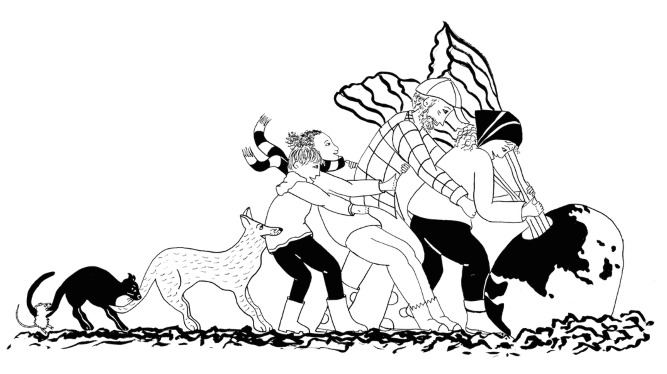This is our most formal meeting of the year. Information and agenda has been sent out via our info-email-list. Paying members can vote. Location: Direktörsvillan Kirseberg (Lundavägen 51a)
To be eligible to vote, you need to have paid the annual fee (the membership fee) before the annual meeting. The annual fee is 20SEK and is paid to:
Bank: JAK
Account number: 9670 06 064 99
Receiver: Institutet för nerväxtstudier
Subject: YOUR NAME + 25/26
If you don´t have a Swedish bank account and have difficulties to pay the membership fee: contact degrowthmalmo@riseup.net, no later than the 17th of October.
AGENDA:
Agenda/Agenda in English:
1. Val av ordförande och sekreterare för mötet, samt 2 justerare av protokollet / Election of chair and secretary for the annual meeting (BOARD)
2. Fastställande av röstlängd för mötet / Counting of number of voting members in the meeting (CHAIR)
3. Val av protokolljusterare och rösträknare / Election of revisor of the minutes and counter of the votes (CHAIR)
4. Fråga om mötet har utlysts enligt stadgarna / Question of announcement of the meeting according to the statutes? (6 weeks in advanced) (CHAIR)
5. Har verksamhetsberättelse och förvaltningsberättelse skickats ut 2 veckor i förväg? Have the Review of activities and the financial report been sent out 2 weeks in advance? (CHAIR)
6. Fastställande av dagordning / Decision on the agenda (CHAIR)
7. Styrelsens arbete det senaste verksamhetsår/ Work of the board for the past finacial year (BOARD)
8. Styrelsens verksamhetsberättelse för det senaste verksamhetsåret / Review of activities for the past working year: see Review of the activities 2024-2025 (BOARD)
9. Styrelsens förvaltningsberättelse (balans- och resultaträkning) för det senaste verksamhetsåret / financial report for the past working year see Financial report 2023-2024 (TREASURER)
10. Revisionsberättelsen för verksamhets-/räkenskapsåret / revisors analysis for the past working year. (financial auditors)
11. Fråga om ansvarsfrihet för styrelsen för den tid revisionen avser / Decision on discharge of the board for the past working year (CHAIR)
12. Motioner / motions (CHAIR)
· Motion #1: see email.
Motions must be sent in in advance (no later than the 10th of October) to: degrowthmalmo@riseup.net,
In-coming motions will be sent out in advance of the meeting between the 11th and the 15th of October.
13. Fastställande av medlemsavgifter /Decision on membership fees (CHAIR)
Current membership fee is 20SEK/year
14. Fastställande av antalet ledamöter och suppleanter i styrelsen /Decision on the amount of members and delegates in the board (CHAIR)
The board of 2024-2025 consisted of 1 chair, 1 treasurer, 1 board member, 2 suppleants.
According to the staues the board should have at least 5 members (including chair and treasurer)
15. Val av styrelseledamöter och suppleanter i styrelsen /Election of board members and board delegates (CHAIR)
The outgoing board: Sara chair, Ekaterina treasurer, Britt board member, Spilios suppleant
Are you interested in becoming a member of the board? Please contact us on no later than the10th of October: degrowthmalmo@riseup.net,
A list of interested candidates will be sent out between the 11th and 15th of October
16. Val av två revisorer samt två revisorssuppleanter / Election of two revisors and two revisor delegates (CHAIR)
Revisors 2024-2025 are: Chaim and Muriel, suppleants are Lucero and Leon
17. (Val av valberedning /Election of election committee) (CHAIR)
18. Fastställande av verksamhetsplan och behandling av budget för det kommande verksamhetsåret / Decision on activity plan and budget for the coming working year (BOARD
19. Övriga frågor / Other matters (CHAIR)
· Representative in a local mobilization group prior the election
· International outreach
21. Årsmötet avslutas / End of the meeting (CHAIR)
A short meeting of the new board will be held right after the end of the annual meeting





